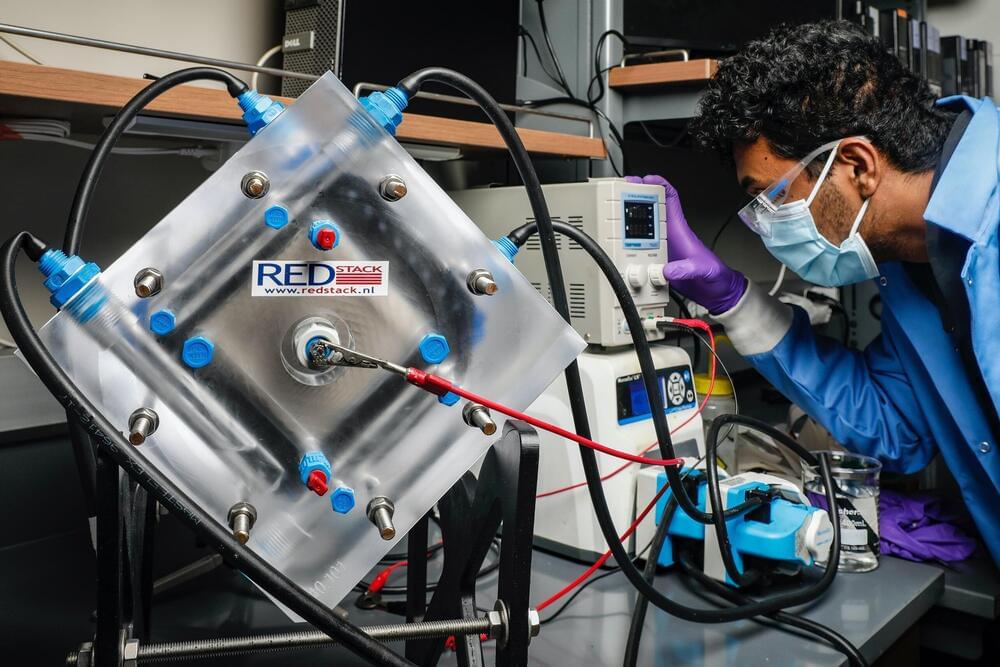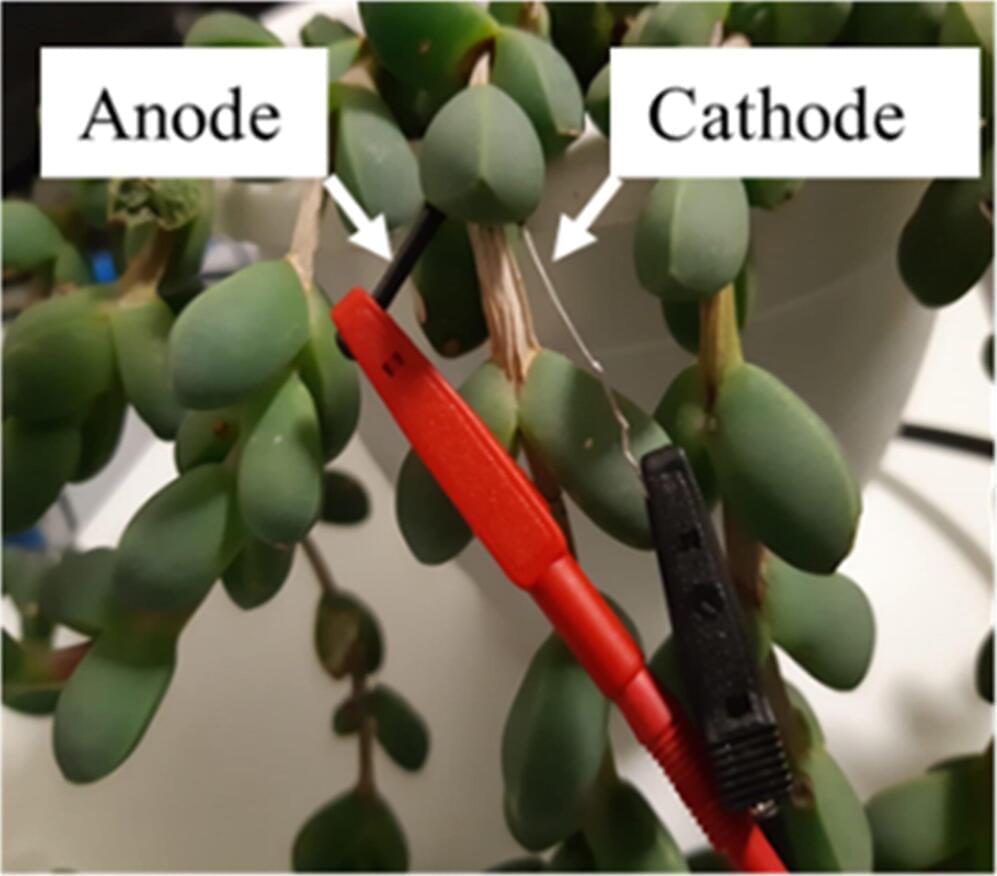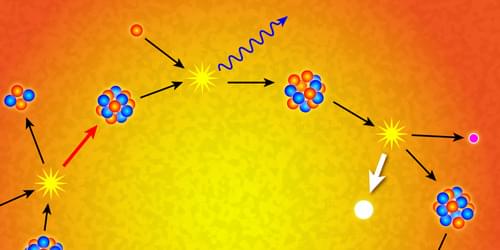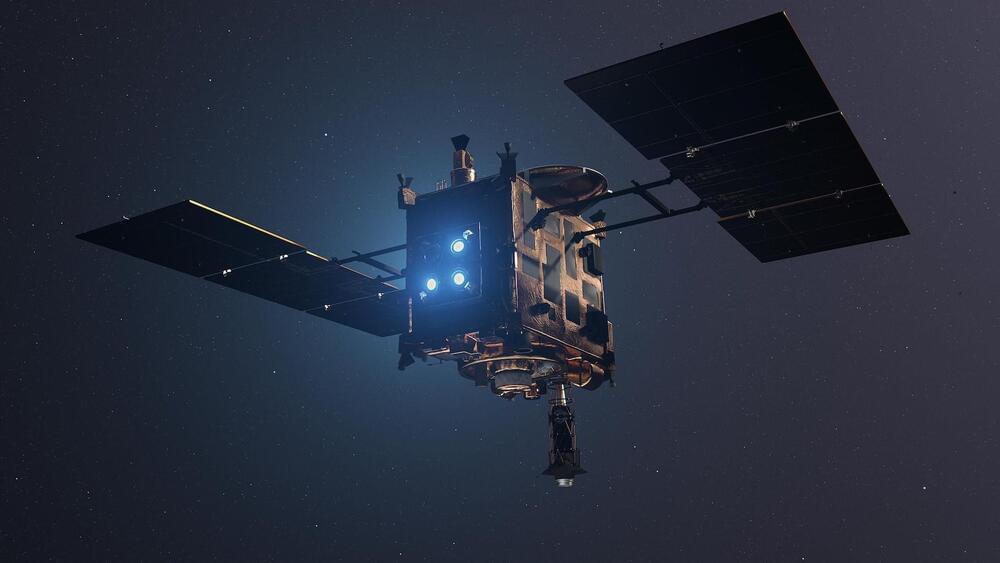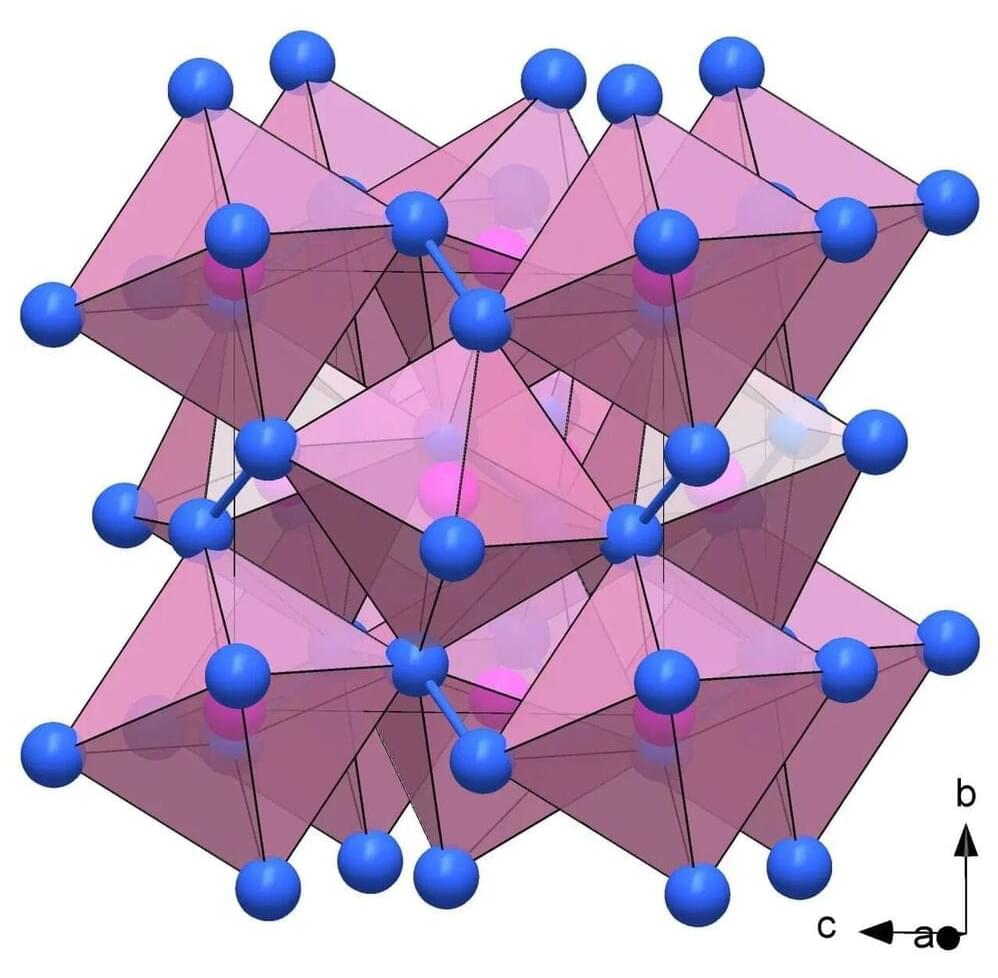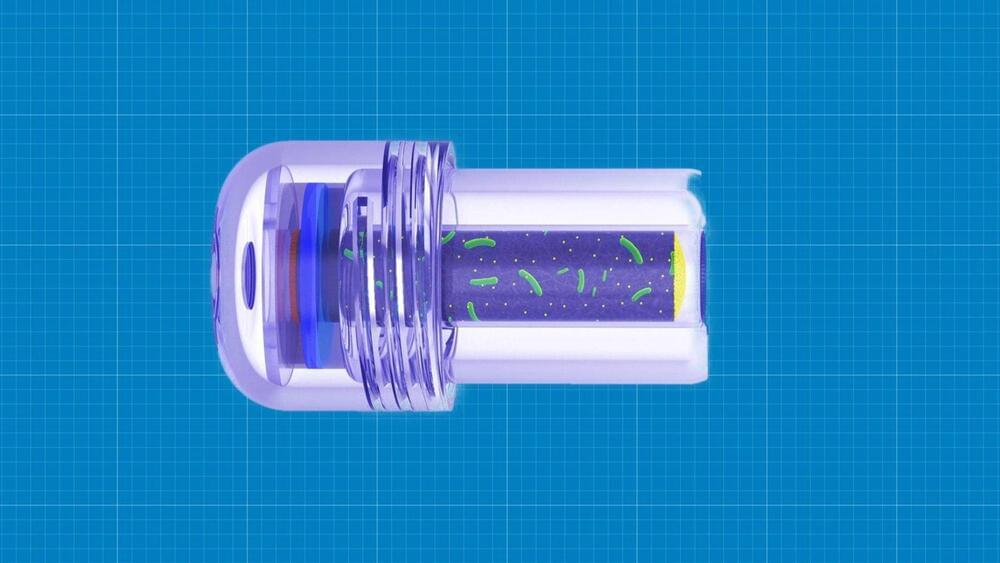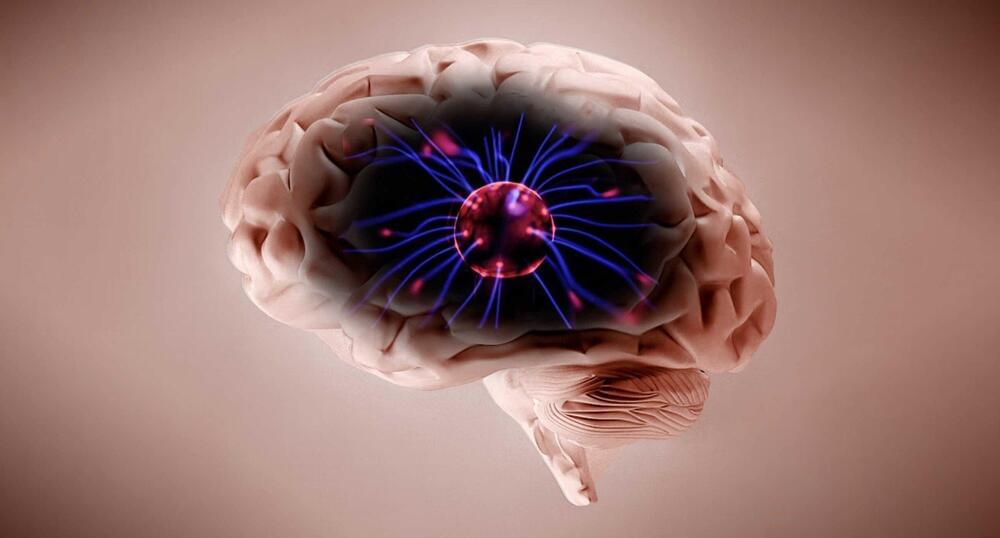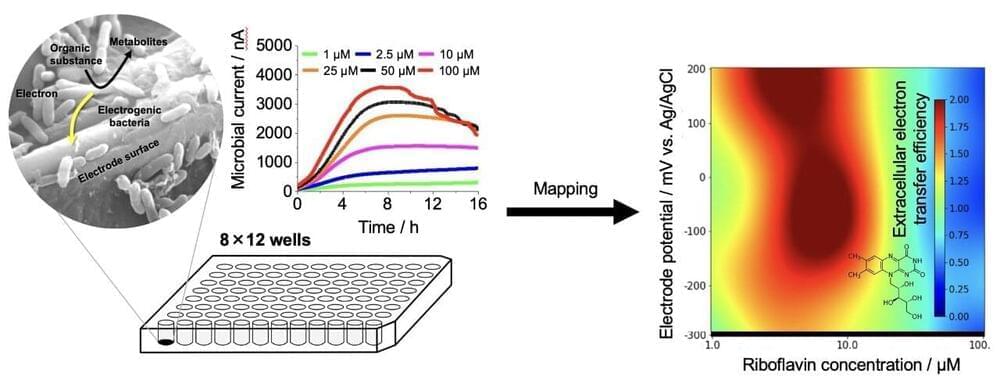A study of neutrinos from the Sun has measured the signal from the so-called CNO cycle, offering a direct measure of the elemental abundances in the Sun’s core.
Solar neutrinos are copiously produced by hydrogen fusion reactions in the Sun’s core. Therefore, they are the direct evidence that the Sun is powered by nuclear reactions. Measurements of solar neutrinos have provided information about the temperature and density of the solar interior, but uncertainties remain about the chemical ingredients. Now the Borexino Collaboration reports a new measurement of the neutrino flux produced by the so-called CNO hydrogen burning cycle in the Sun [1]. This cycle—which requires the presence of carbon ©, nitrogen (N), and oxygen (O)—produces neutrinos that carry enormous diagnostic power relating to the properties of the solar interior. By measuring these neutrinos, the collaboration provides a precious piece of information about the elemental makeup of the Sun, bringing us closer to resolving a controversy that has plagued solar physics for over 20 years [2].
Stars spend about 90% of their lifetimes fusing hydrogen into helium, producing two neutrinos in the process. The pp chain—or proton–proton chain—and CNO cycle are the two fundamental modes by which stellar fusion occurs. Whether a star is dominated by the pp chain or the CNO cycle depends on its core temperature, which is primarily determined by the mass of the star. In the Sun and similar low-mass stars, the pp chain generates almost all the nuclear energy; the CNO cycle is the main power source for more massive stars. The pp chain is a series of nuclear reactions that require no additional nuclei besides hydrogen as fuel. By contrast, the CNO cycle relies on the presence of C, N, and O nuclei as catalysts in the production of helium (Fig. 1). In the Sun, this catalytic process introduces a linear dependence between the amount of C, N, and O and the flux of CNO neutrinos. Thus, CNO neutrinos are a powerful tool for probing the chemical composition in the Sun’s core.
